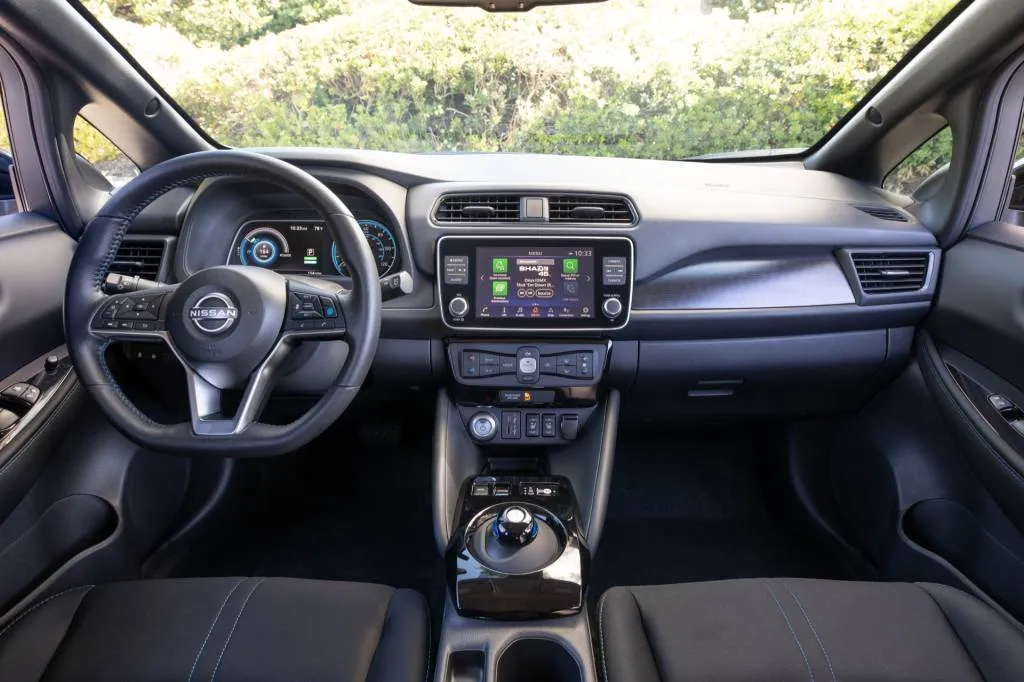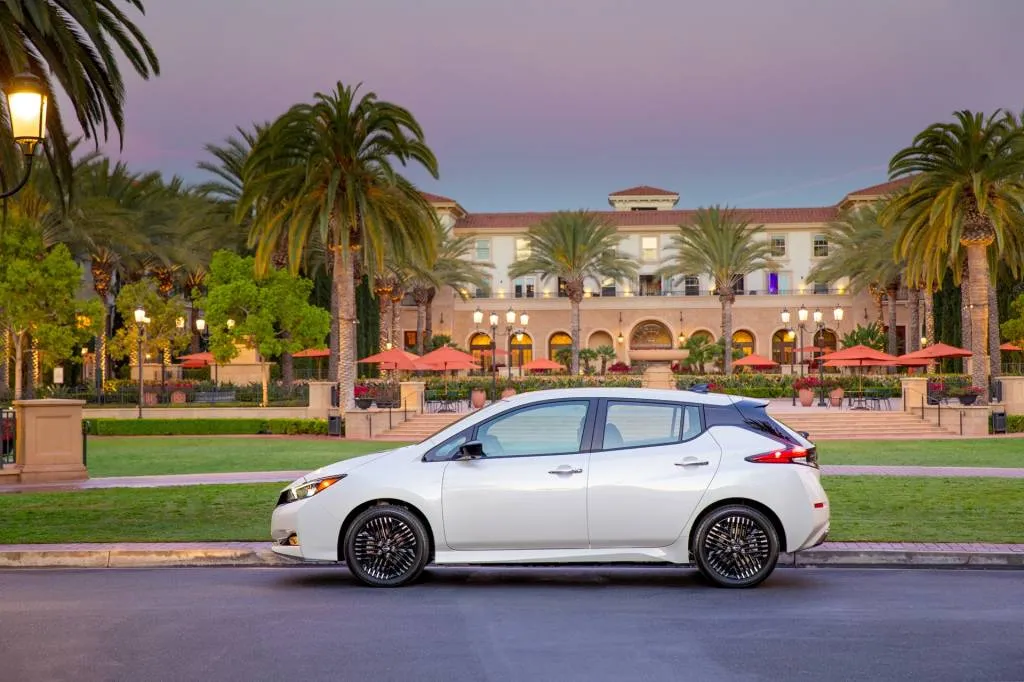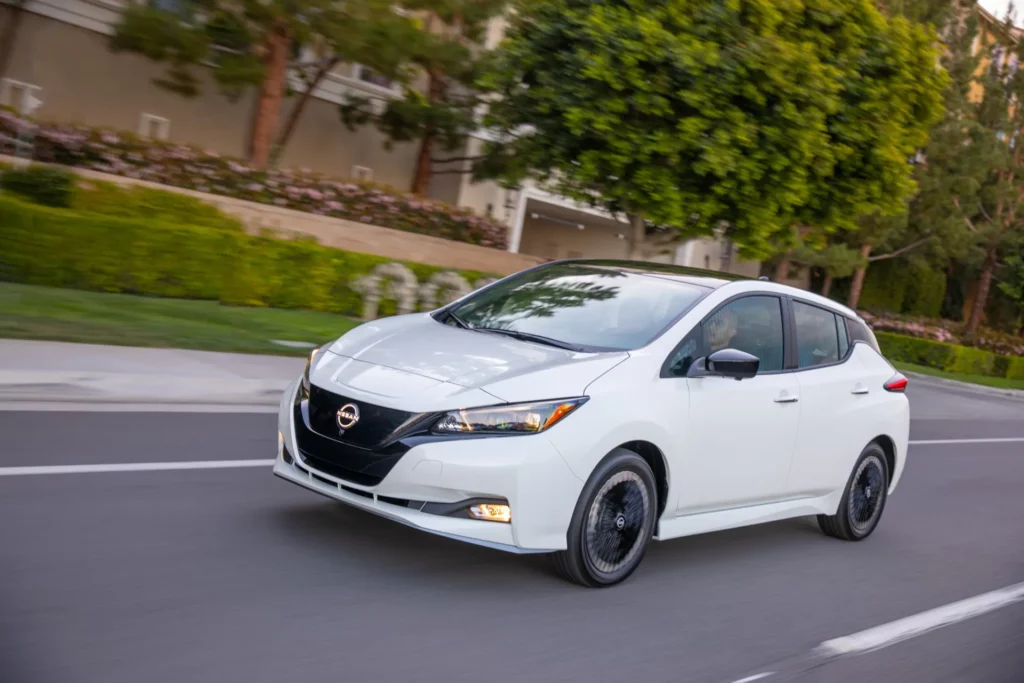The 2024 Nissan Leaf is now eligible for a $3,750 federal EV tax credit, Nissan confirmed Monday in a press release.
The credit—half the maximum amount of $7,500—can be applied to any new 2024 Leaf models purchased and placed in service by Dec. 31, 2023. The confirmation comes after several months of ambiguity on whether the Leaf would qualify for any tax-credit amount under new rules enacted under the Inflation Reduction Act (IRA).
According to Nissan, because the Leaf and its battery pack are produced in Smyrna, Tennessee, it qualifies for a $3,750 credit under the “battery content” requirements of the IRA. The automaker didn’t state why the Leaf doesn’t qualify for the full amount, but the IRA does include other requirements, including some related to the sourcing of battery raw materials, that the Leaf may not meet.

2024 Nissan Leaf
And while Nissan’s release used the phrasing that the automaker “has been able to certify” the 2024 Leaf for tax-credit eligibility, indicating that the certification process was the reason for the lag between the 2024 model’s launch and announcement of the tax credit, it made no statement retroactively implying that 2023 models were included in this certification (no changes in assembly locations was made for 2024).
Nissan raised the price of the Leaf by $340 for 2024, to $29,235 with destination, but it remains unchanged from the previous model year. For 2023 it received a battery change that boosted efficiency slightly. Its last redesign was for the 2017 model year, but with the imminent departure of the Chevrolet Bolt EV and EUV, the Leaf is one of the last affordable EVs standing.

2024 Nissan Leaf
The Leaf also remains the only one of Nissan’s EVs using the CHAdeMO standard for road-trip fast-charging. The Ariya crossover uses the Combined Charging Standard (CCS) but it and other future EVs will get the Tesla North American Charging Standard (NACS) connector.
The Ariya isn’t U.S.-made and isn’t due to be. But starting in late 2025 Nissan will make an “elevated” sedan, expected to replace the Maxima—and based on the IMs concept first shown in 2019—in Mississippi. Given the incentives, it will almost certainly have U.S.-sourced batteries that will qualify it for at least the $3,750 federal tax credit, if not more.

